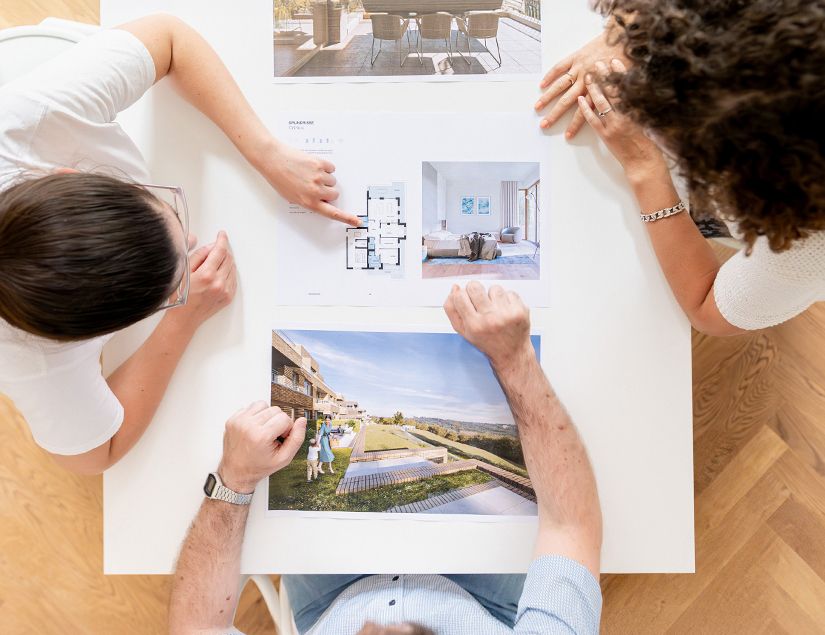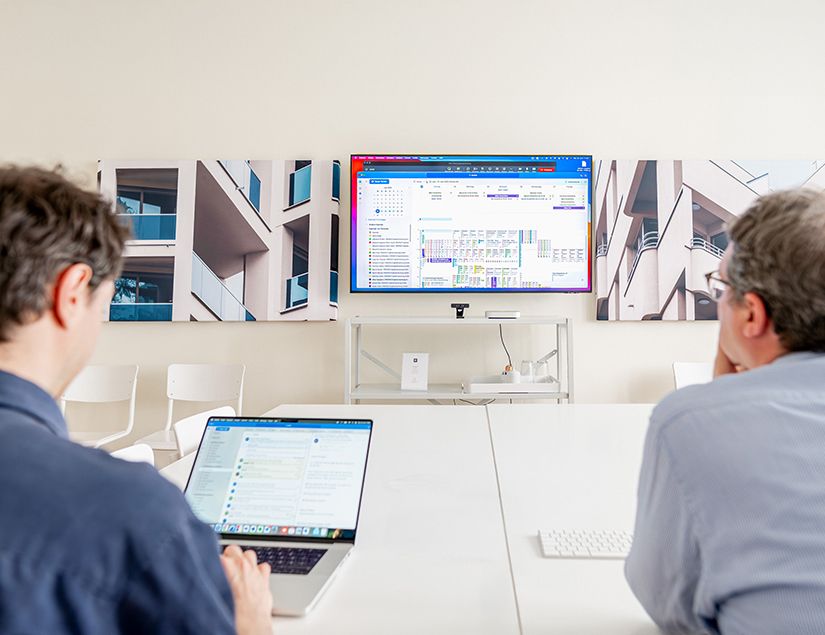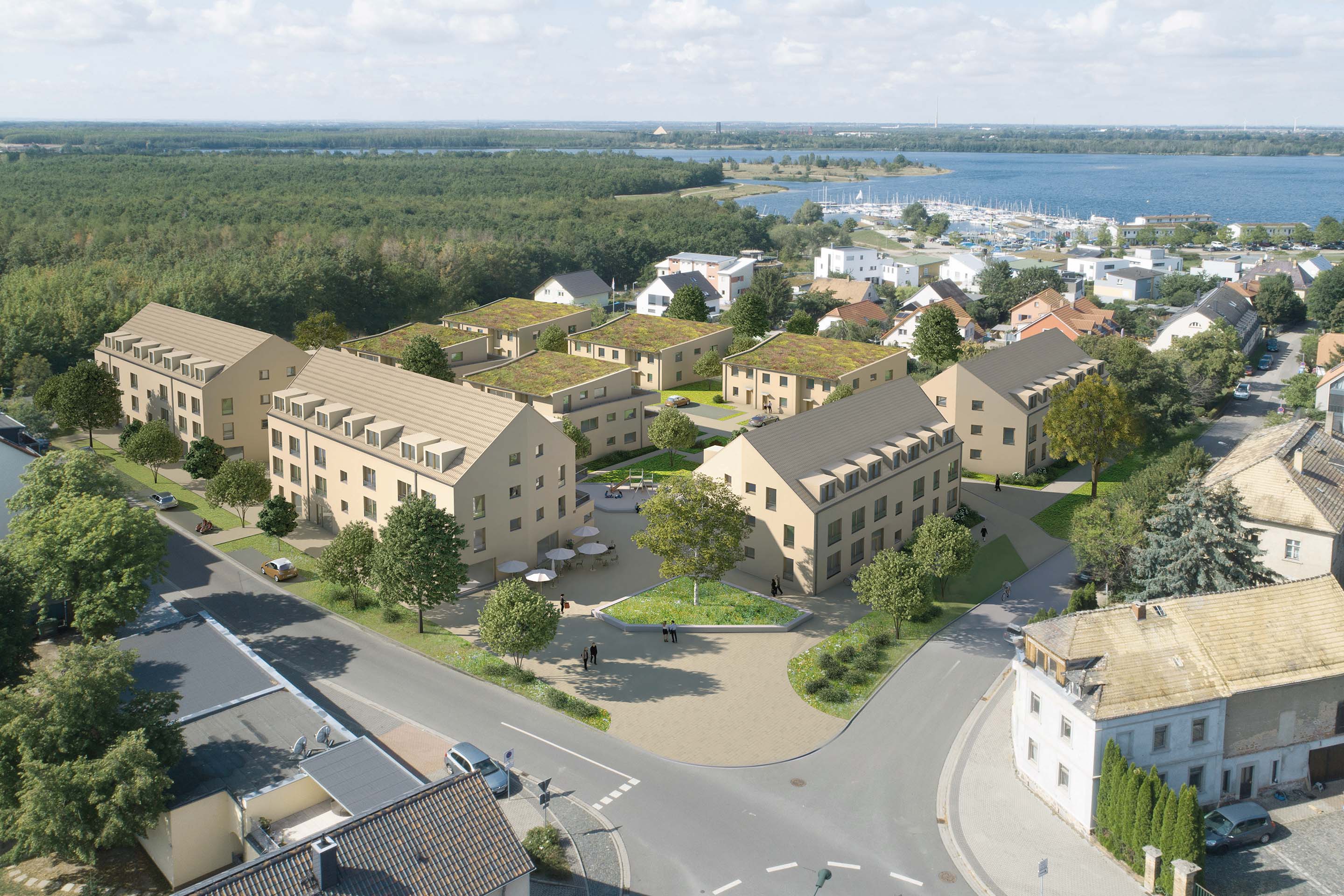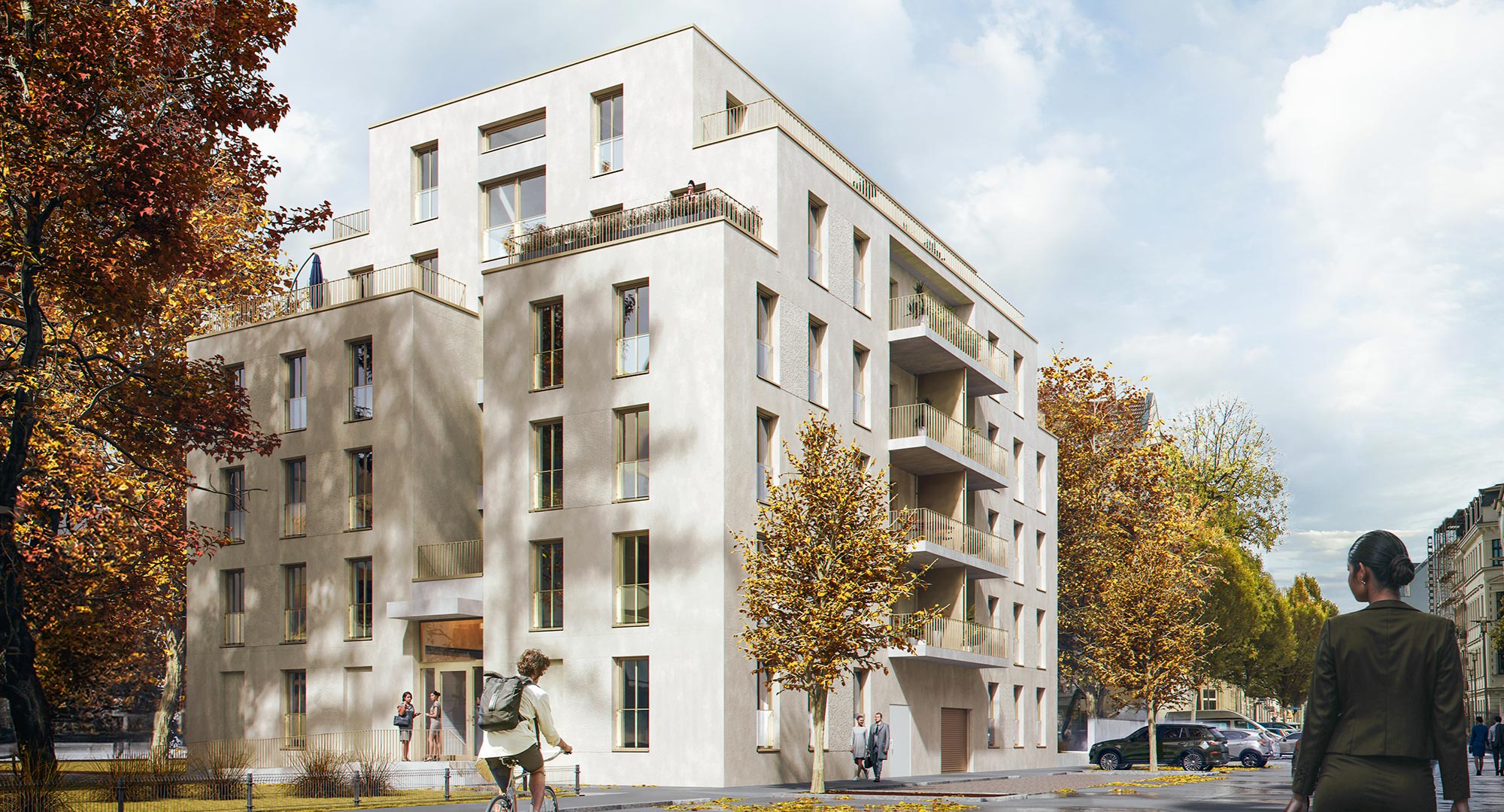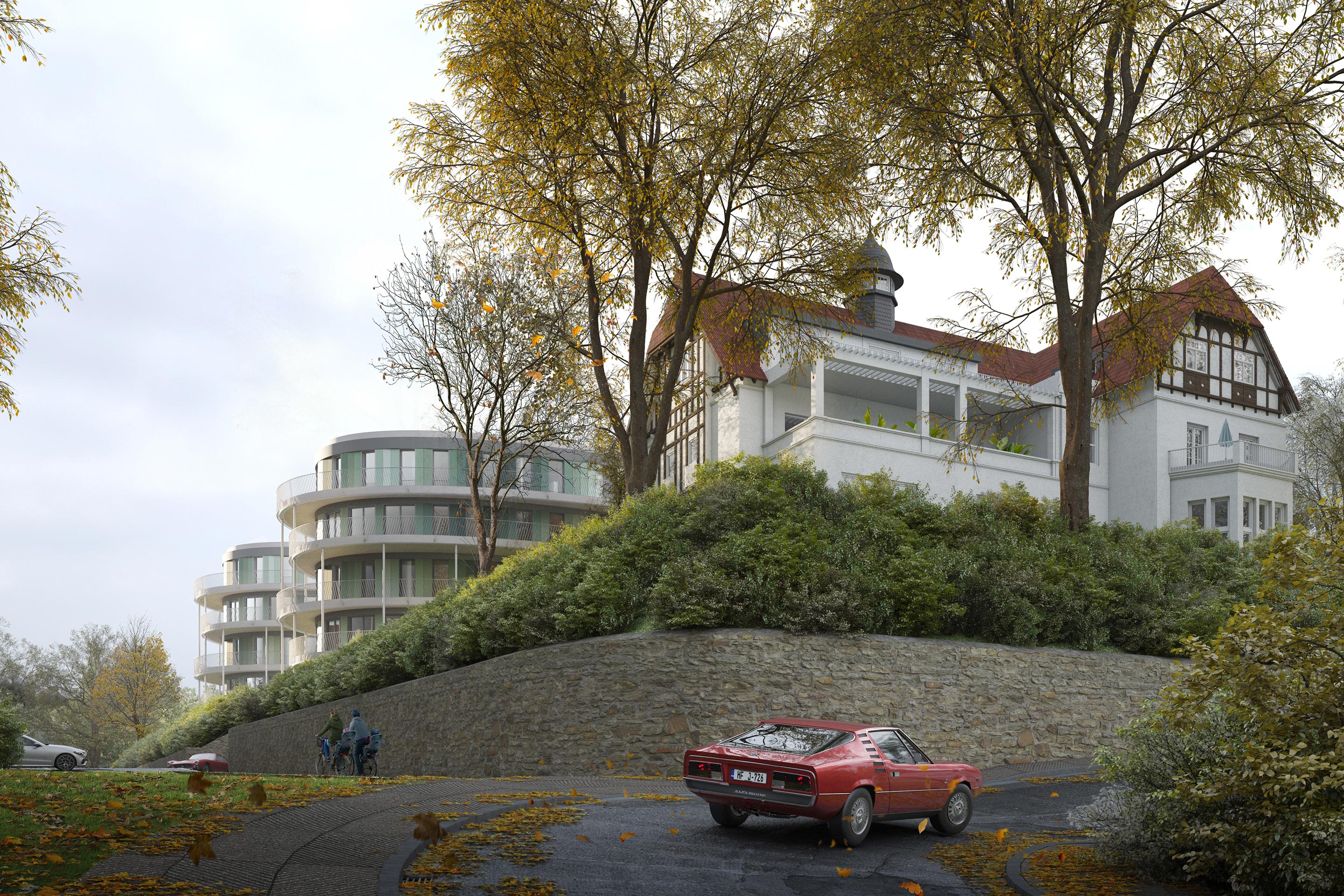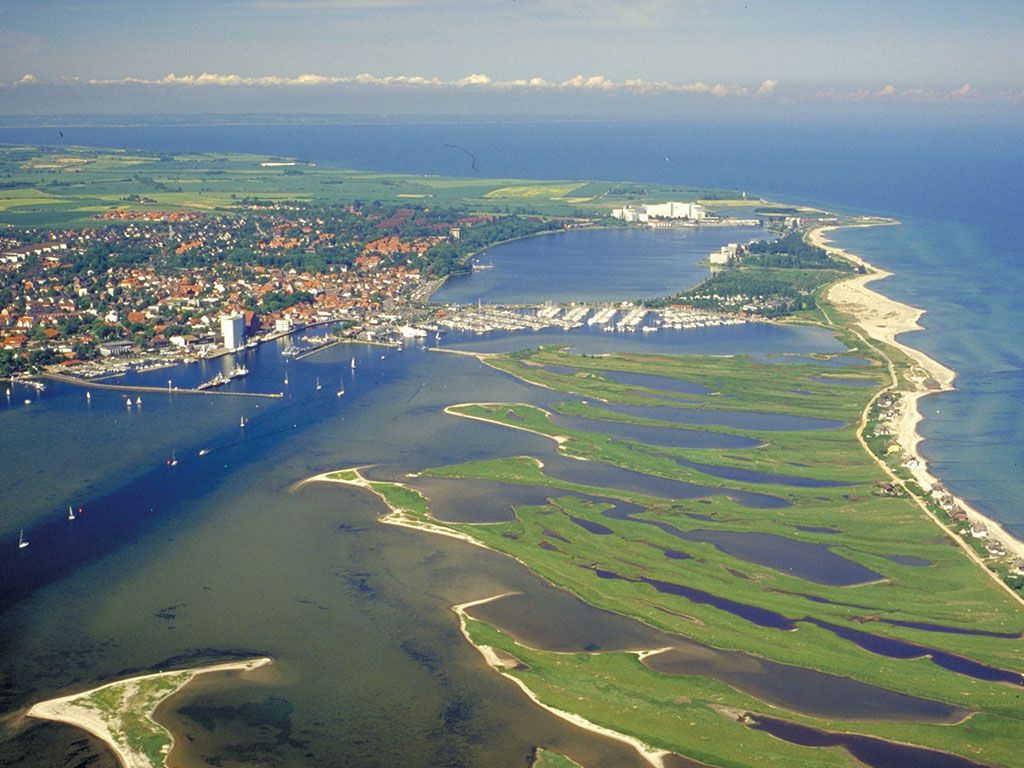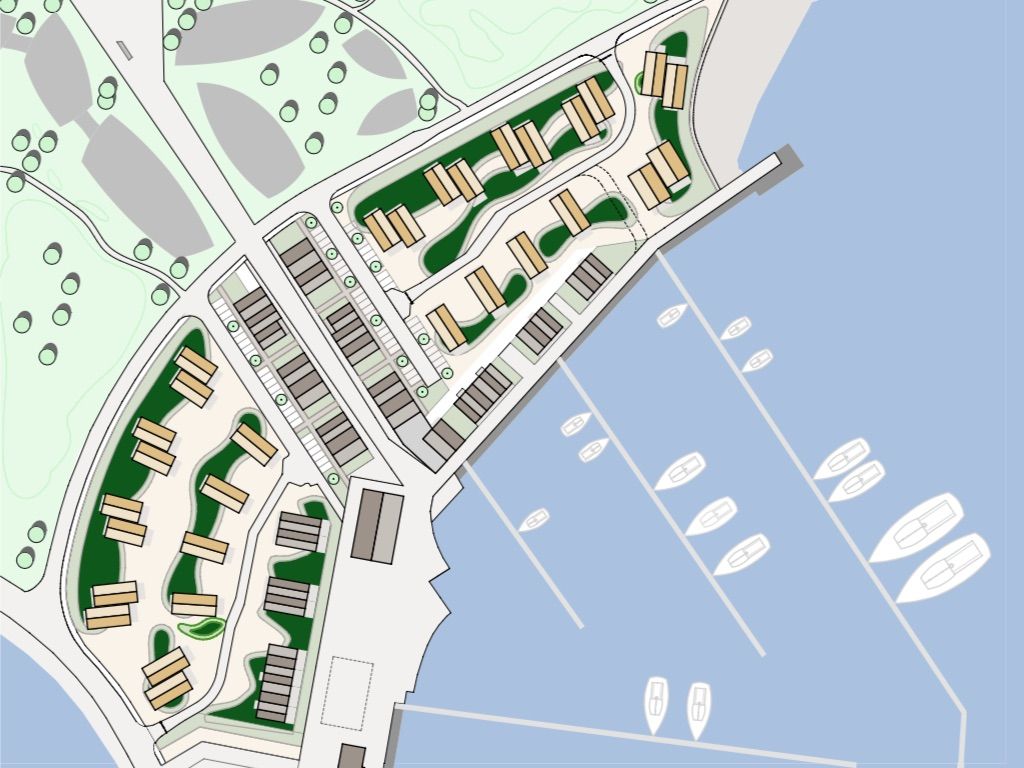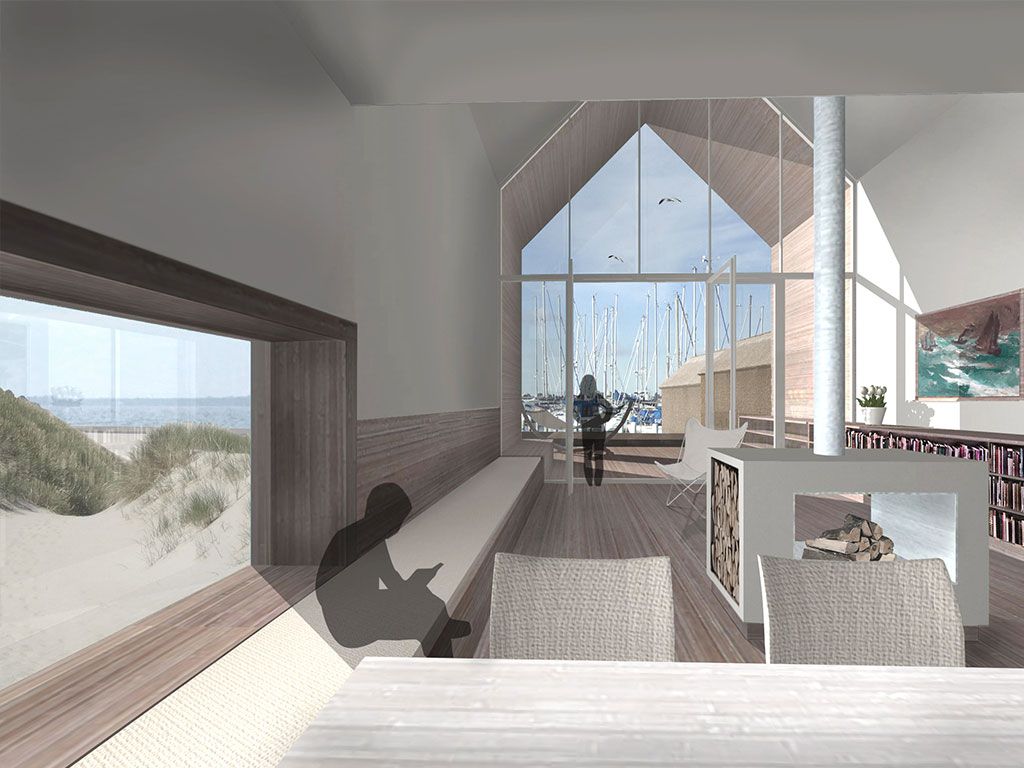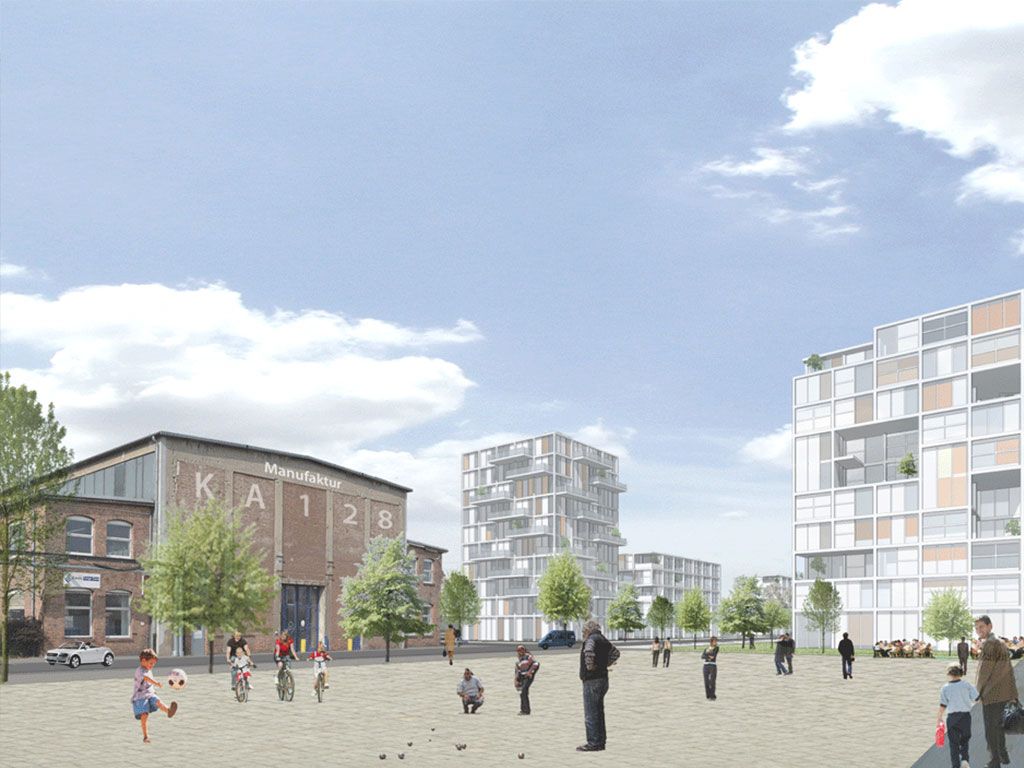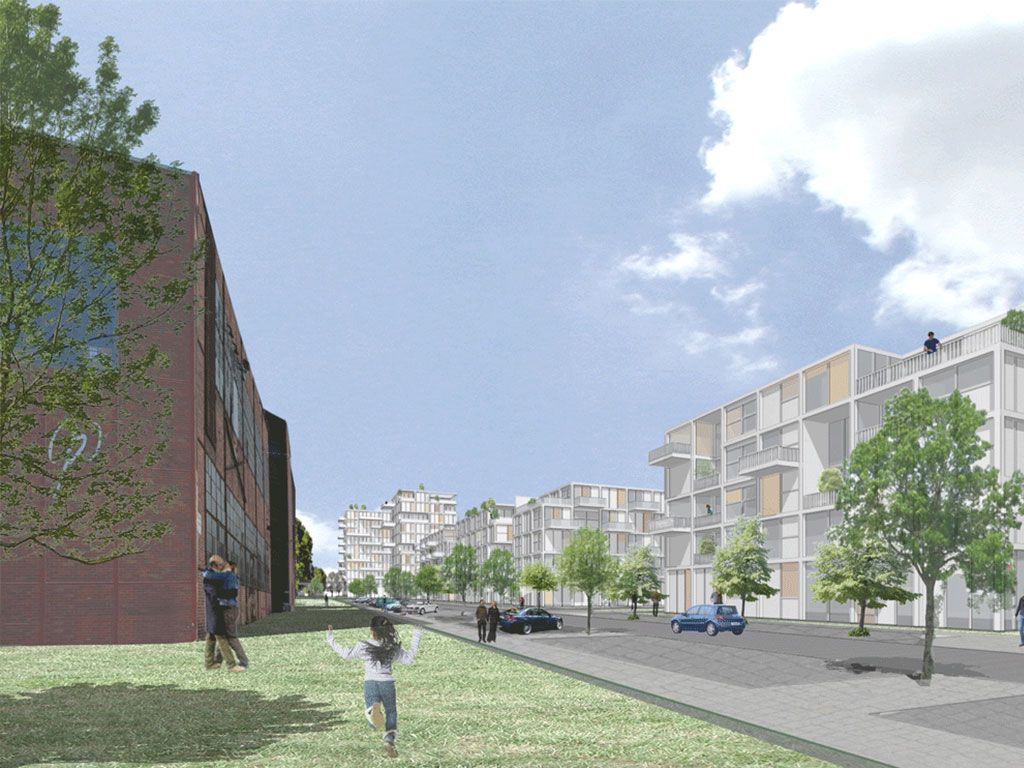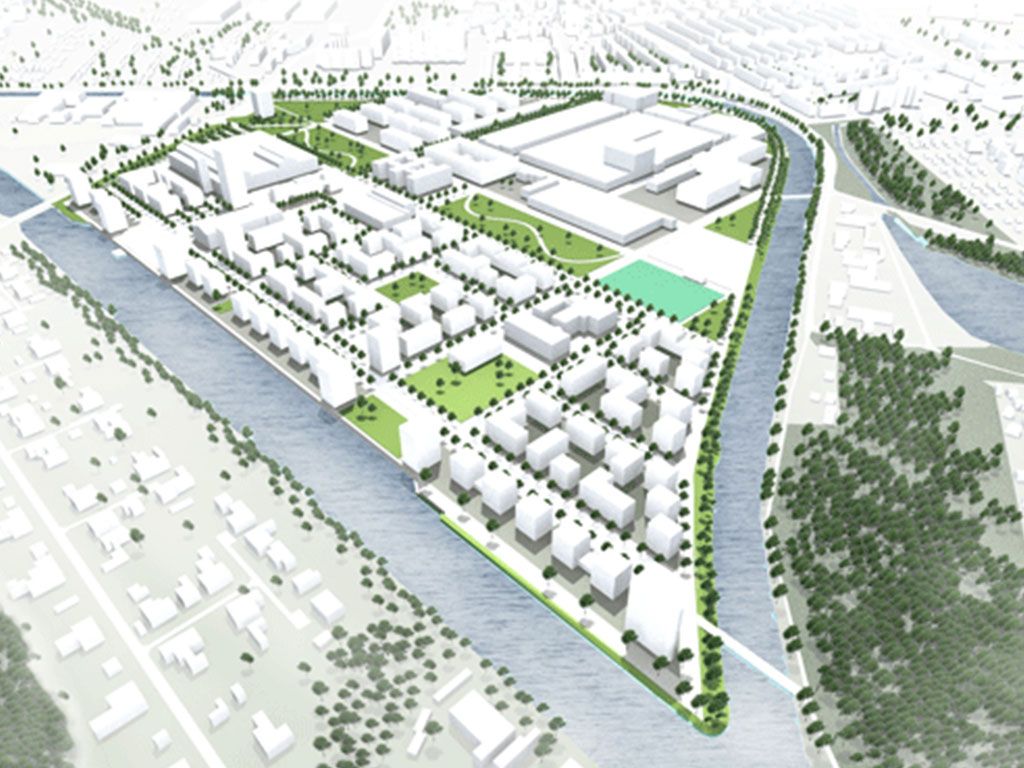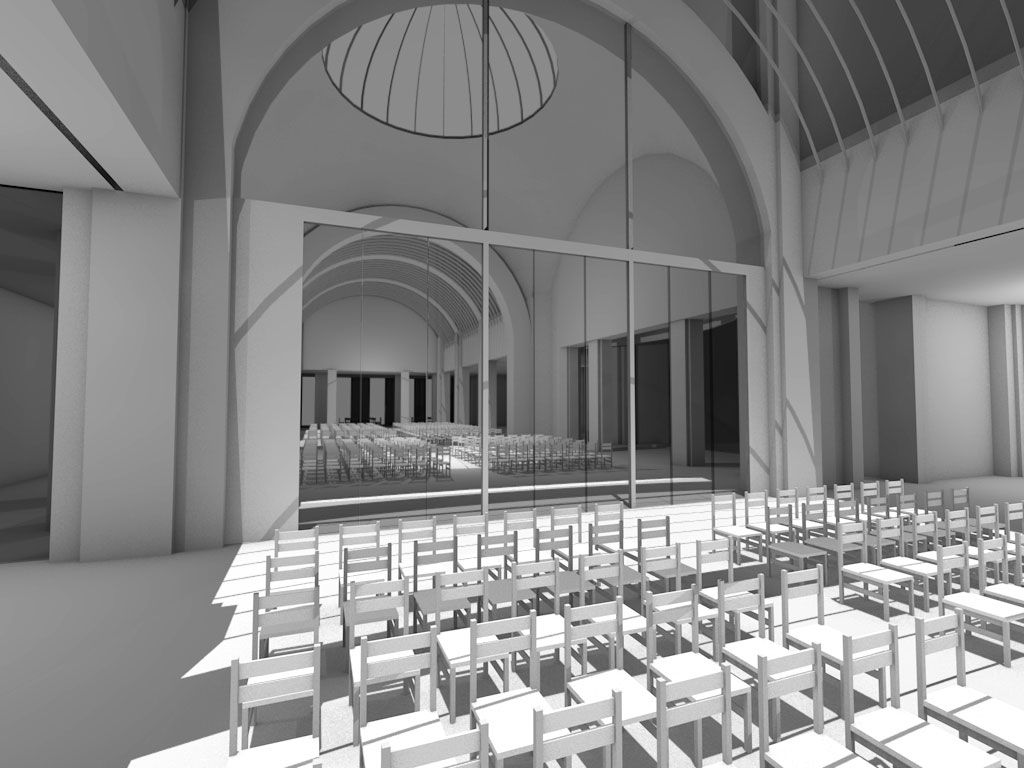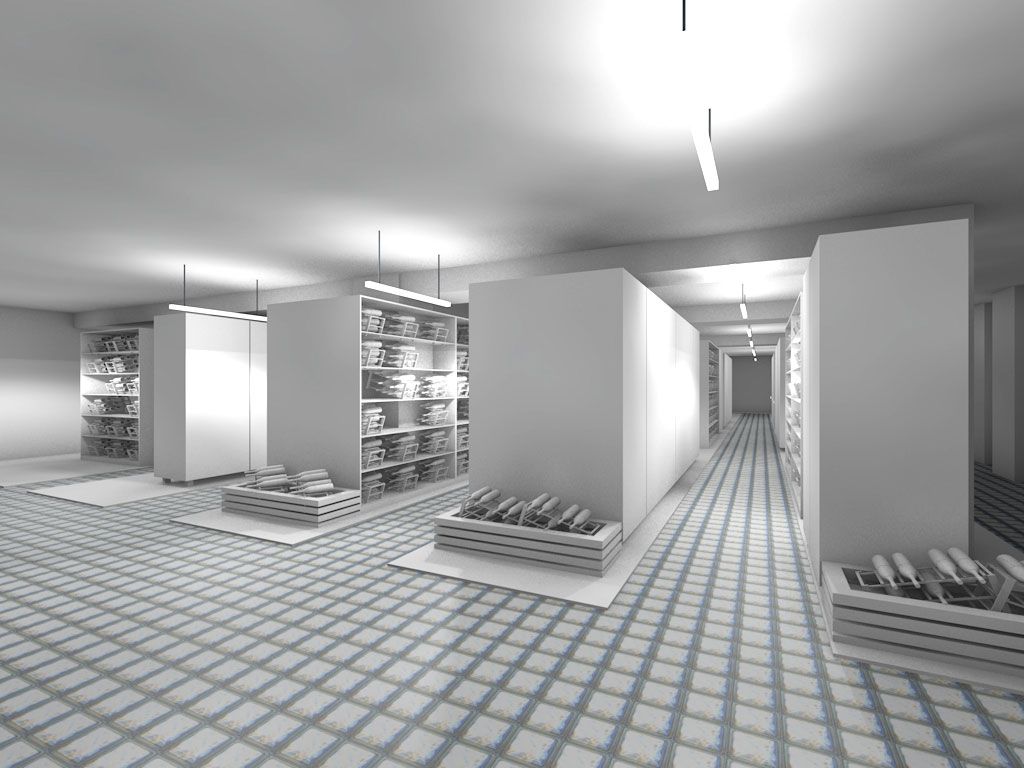Service-Development
Careful examination of a construction project
Due diligence systematically analyses the strengths, weaknesses, opportunities and risks of a construction project. It is an essential part of any sound investment decision in real estate projects.
Commercial and legal due diligence lays the foundation for economically viable and legally secure project development. It assesses risks with regard to ownership, usability and eligibility for subsidies of the property. The focus is on
- Reviewing the initial planning law situation and buildability
- Analysing the land register situation and ownership structure
- Identifying building encumbrances, rights of way and easements
- Reviewing existing rental, lease or hereditary building right agreements
- assessing the tax implications of land transfer tax and value added tax
- evaluating funding opportunities and subsidies from KfW, IFB or state programmes
- reviewing key economic data such as purchase calculations, development costs and project budget
- assessing debt servicing capacity and financing structure
Technical due diligence assesses the structural, infrastructural and environmental conditions of a project. It serves to identify technical risks at an early stage, establish cost certainty and meet ESG requirements.
In detail, this involves
- Identifying contaminated sites, soil contamination and unexploded ordnance
- assessing the existing building fabric and renovation requirements
- examining the development situation with regard to water, sewage, energy, telecommunications and transport
- analysing noise emissions and sound insulation requirements
- integrating renewable energies through the use of photovoltaics, heat pumps or district heating
- Consideration of environmental and nature conservation requirements, for example with regard to species protection, soil sealing and emissions
- Compliance with technical and regulatory standards such as GEG, EnEV, EU taxonomy
- Analysis of ESG aspects such as energy efficiency, sustainability of building materials, accessibility or affordable housing
Risks due to insufficient due diligence: Incomplete or delayed due diligence can have serious consequences for the economic, technical or legal feasibility of a project. The most common risks include:
- Unexpected costs due to contaminated sites, unexploded ordnance or lack of development
- Project delays due to unresolved ownership or legal issues
- Loss of subsidies or tax advantages due to missed deadlines
- Overpayment of the purchase price due to insufficient project or market analysis
- Difficulties in marketing or financing as a result of incorrect assessments
- Restrictions on use or high retrofitting costs due to unrecognised noise conflicts and insufficient sound insulation
Interdisciplinary expertise
Due diligence is teamwork. A comprehensive assessment can only be achieved through close cooperation with external experts. These include
- Specialist lawyers for private and public construction law
- Tax advisors
- Architects and specialist planners
- Building experts and appraisers
- Surveyors
- Geologists and materials researchers
- Real estate agents
- Notaries
The key to the success of a construction project is a comprehensive, reliable analysis of the location and its potential uses. We support you right from the start with a holistic assessment of the economic and planning feasibility of your project.
Our services include
- Benchmarking and competitive analysis: We analyse all relevant market and competitive data in order to realistically assess opportunities and risks.
- Target group analysis: Detailed profiles of potential users enable targeted demand management.
- Sales price determination through sound price analyses based on market data.
- Space allocation plans and utilisation concepts that optimally combine functionality and economic efficiency.
- Development of tailor-made financing models incorporating traditional and alternative sources of capital.
Interdisciplinary expertise
Due diligence is teamwork. A comprehensive assessment can only be achieved through close cooperation with external experts. These include
- Specialist lawyers for private and public construction law
- Tax advisors
- Architects and specialist planners
- Building experts and appraisers
- Surveyors
- Geologists and materials researchers
- Real estate agents
- Notaries
Obtaining building permits quickly and securely is essential for minimising time and costs. From the initial test design to the preliminary building application and the building application itself, we manage all the necessary steps efficiently and in compliance with the law.
These include
- Developing consensus-based urban development concepts
- Implementing development plan procedures
- Drafting and negotiating urban development contracts
- Close coordination with local authorities to speed up approval processes
- Organising building permits and neighbourhood agreements
In our work, we are supported by a network of experts, including
- specialist lawyers for public and private construction law
- urban and infrastructure planners
- tree and species conservation experts
- hydrologists
- subsidy consultants
Projects that stand out from the competition thanks to their high design and functional quality are particularly successful.
To achieve this, we take on the overall planning in accordance with HOAI LPH 1–9 and coordinate all specialist planners, thus ensuring implementation on time and within budget.
Our services:
- Building construction planning with a focus on economic efficiency and user-friendliness
- General planning and coordination of specialist planning for building services, statics, building physics, fire protection and geotechnics
- Ensuring compliance with building regulations, taking into account technical feasibility and investment costs
We are supported in this by
- landscape architects and specialist planners
- experienced construction companies and general contractors
- building experts and safety coordinators (SiGeKo)
- insurers with tailor-made solutions for project developments
Efficient controlling is essential for staying on budget and on schedule and ensuring quality. Our project management team takes full responsibility for managing your project by
- representing the client with a focus on your economic interests
- precisely targeting the project goals
- selecting and managing the planners and carrying out VGV procedures
- liquidity planning and cash flow modelling to ensure solvency throughout the project
- project controlling and reporting for transparent and traceable management
- commissioning management
Our partners in the field of project management are
- the German Association for Project Management in the Construction and Real Estate Industry (DVP)
- Specialist lawyers for private and public construction law
- Public contracting authorities and experts for disrupted construction processes
Customised interior design is not only a selling point, it also creates lasting added value by increasing the quality of living and the attractiveness of the property. We design rooms that meet the needs of the residents and create a pleasant atmosphere, taking responsibility for
- Sales coordination and targeted advertising campaigns
- Colour and material concepts as well as furnishing lines, taking into account individual special requests
- drafting of purchase agreements and legally compliant declarations of division
Graphic designers support us in this, as do photographers, renderers, tax advisors, notaries, estate agents and financial brokers.
Listed buildings not only score points for their uniqueness, they also offer investors attractive tax advantages. However, the requirements here are complex and require special expertise.
We provide you with expert support in
- coordinating with monument authorities and drawing up monument preservation plans
- developing economically viable utilisation concepts that take monument protection into account
- tax optimisation through specialised consultants
We are supported in this by
- building researchers and monument conservation consultants
- tax consultants specialising in monument conservation
- lawyers specialising in public building law
References
PROPOS Projects
We also see service development as an integral part of our project work in our own PROPOS projects. Right from the concept phase, we think beyond traditional project development and design tailor-made service and usage concepts that ensure the long-term success of our own projects. This results in real estate solutions that are impressive not only in terms of their construction, but also in terms of their functionality and user-friendliness.
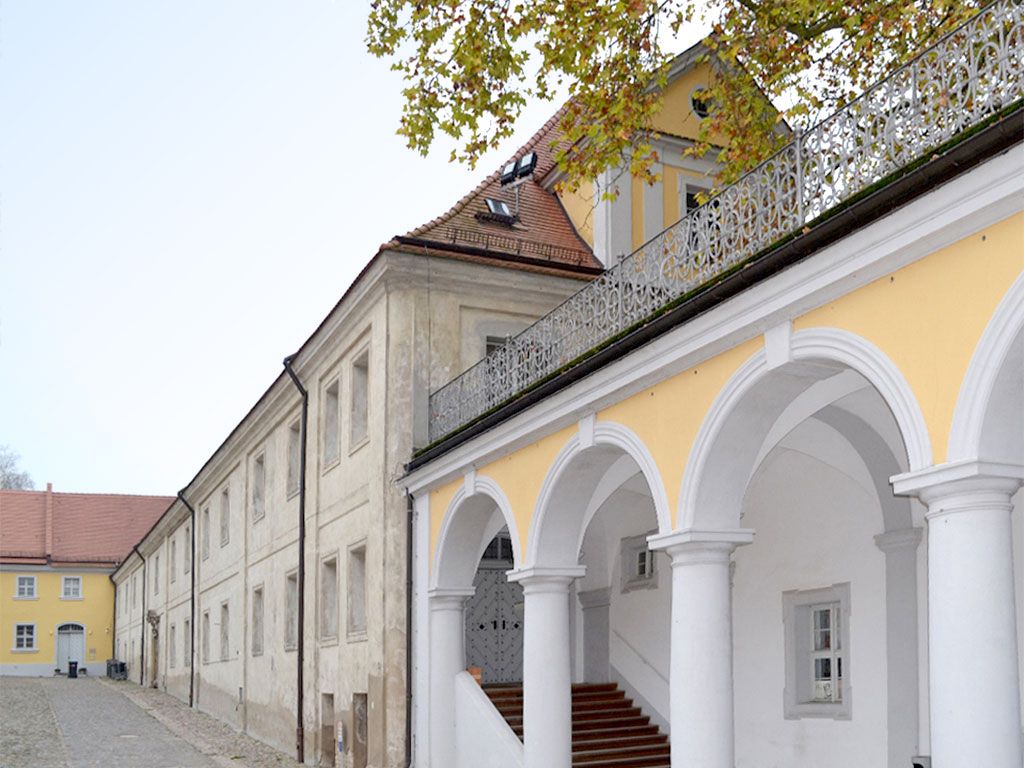
Lower Lusatia: Chancellery building of Neuzelle Monastery
The Neuzelle monastery complex in Lower Lusatia, founded in 1268 and later converted to Baroque style, has been gradually renovated since the fall of the Berlin Wall. Some of the buildings now house schools and a boarding school. As part of a project development study, PROPOS examined and evaluated various options for the renovation of the 18th-century chancellery building.
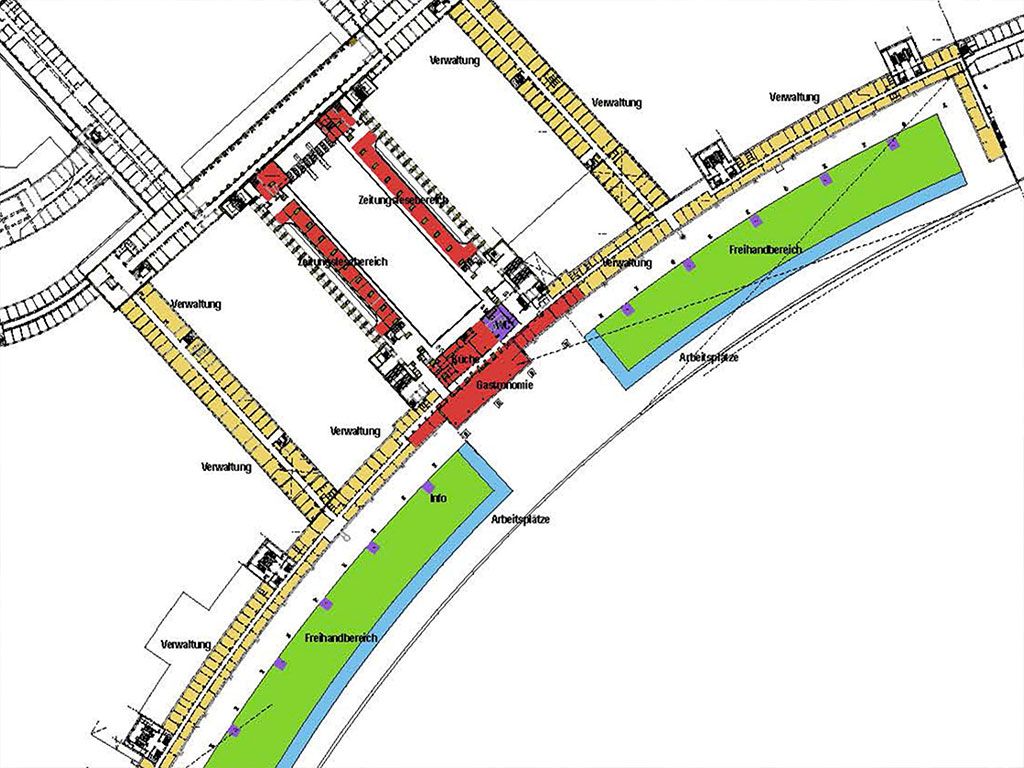
Berlin: Central State Library at Tempelhof Airport
A feasibility study was conducted to explore the spatial and structural possibilities of accommodating the Central State Library (ZLB), which was previously spread across three locations, in the main parts of the building complex. The most important objectives were to expand the open-access area, provide visitors with suitable reading and working areas, and consolidate the administrative apparatus.
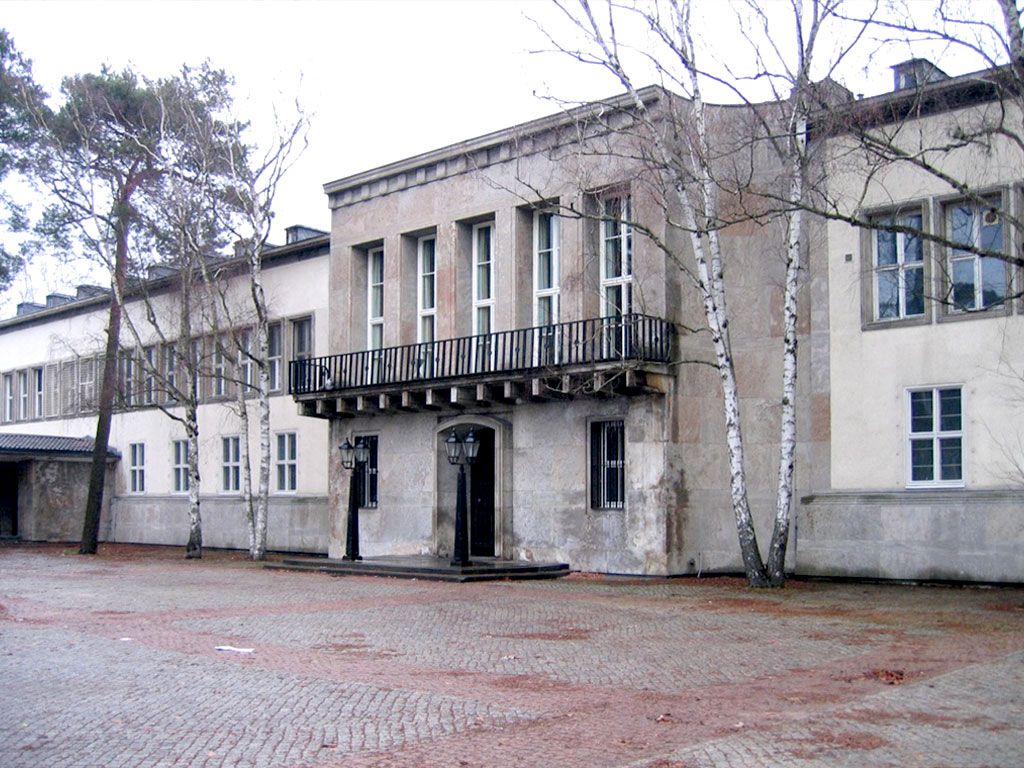
Berlin: Clayallee property in Zehlendorf
PROPOS Projektentwicklung was tasked with developing suitable uses for the former US headquarters in Dahlem, which served as the headquarters of Luftgaukommando III in the 1930s. We developed five options and evaluated them in terms of their marketability: government use, barrier-free for all, hotel and conference, education and science, mixed use.
In cooperation with empirica
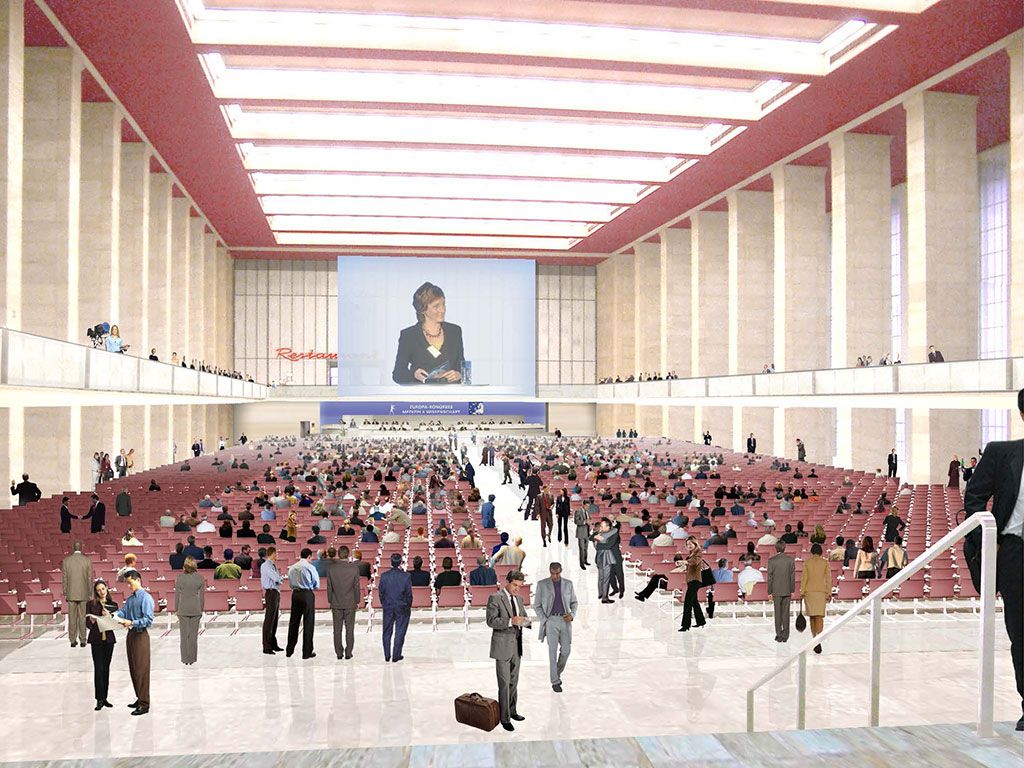
Berlin: Nutzungskonzept für den Flughafen Berlin-Tempelhof
Here, we developed a concept for the entire building complex with eight modules: special airport (primarily for private and business air traffic), health centre, hotel, convention centre, administration, museum, police station and special uses. The concept offers scope for gradual and flexible implementation of the modules.

Berlin: Aviation Museum at Tempelhof Airport
PROPOS Projektentwicklung developed a space allocation plan in line with conservation guidelines and the overall concept for an aerospace museum. According to this plan, the former check-in hall will serve as the entrance area and the eastern halls as exhibition space. An aerospace innovation centre, a conference centre and hotels are planned for other parts of the building.
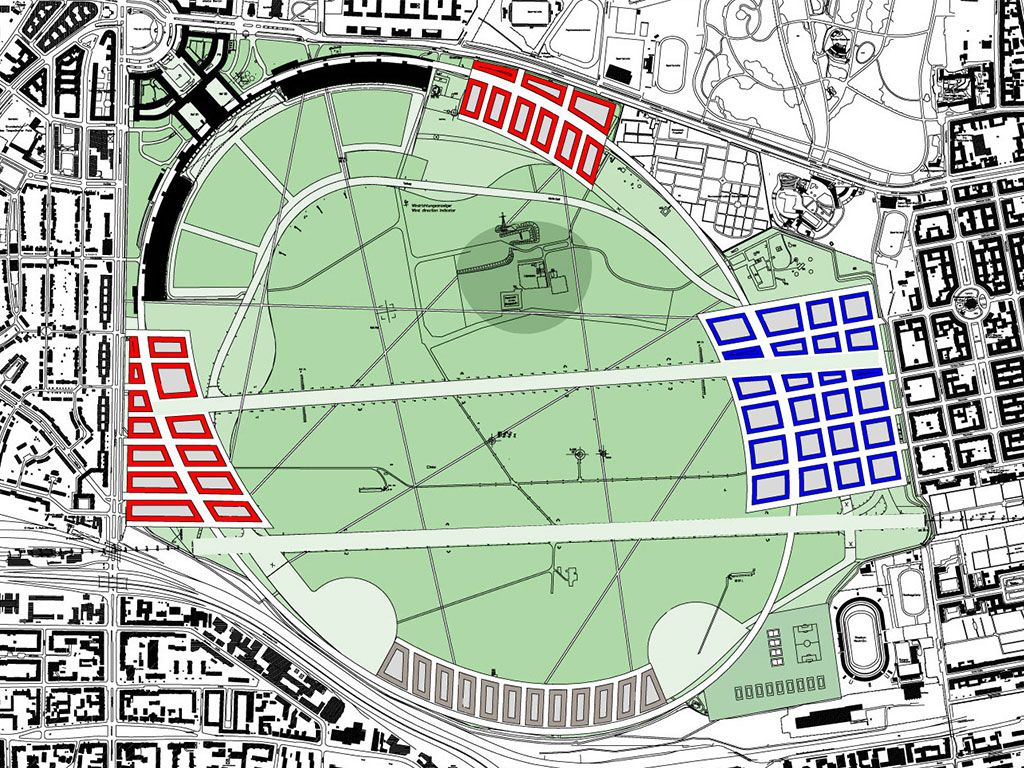
Berlin: Tempelhof Airport
The historic Berlin Tempelhof Airport was closed in 2008, and since then the halls and hangars have mainly been used for trade fairs and events. No final decision has yet been made on the future use of the listed building complex. An expert report by PROPOS Projektentwicklung has assessed the building fabric, examined possible uses – such as offices for federal authorities – determined initial investment and ongoing operating costs, and estimated the implementation period.
Heiligenhafen: Marina-Resort
The Marina Resort Heiligenhafen is being built between the Baltic Sea, the marina, the Graswarder nature reserve and the newly developed south beach of the inland lake. Concept development, master planning and project management are in the hands of PROPOS. Sixty-one buildings are planned, 40 of which will be holiday homes for individual use. The remaining 21 will house holiday apartments and maritime businesses.
In cooperation with empirica
Berlin: Gartenfeld Island City, Spandau
Not far from Spandau’s old town and citadel lies the island of Gartenfeld with its abandoned industrial buildings that once belonged to Siemens. In the southern part of the 60-hectare site, a commercial and technology park is to be built, while the northern part will be a mixed-use area with around 3,700 apartments and attractive infrastructure. PROPOS Projektentwicklung has developed a concept here that optimally combines residential and new commercial use. The first 900 apartments are scheduled for completion by 2026.
In cooperation with empirica

Umwandlung von Nichtwohnimmobilien in Wohnimmobilien
PROPOS ist am Forschungsprogramm „Experimenteller Wohnungs- und Städtebau – ExWoSt“ beteiligt, das in Deutschland erstmals die Umwandlung von Büro-, Gewerbe- und Industriegebäuden zu Wohnraum analysiert. Federführend ist hier das Bundesinstitut für Bau-, Stadt- und Raumforschung (BBSR).
In Kooperation mit empirica
Berlin: Ministry Building House II
The listed Block II of the former Deutsche Bank complex at Mauerstraße 25–28 in Mitte is to be refurbished for multifunctional use by federal ministries. We have identified potential uses for the special-purpose areas that are appropriate for the property and location and combined them into a viable concept.
In cooperation with empirica
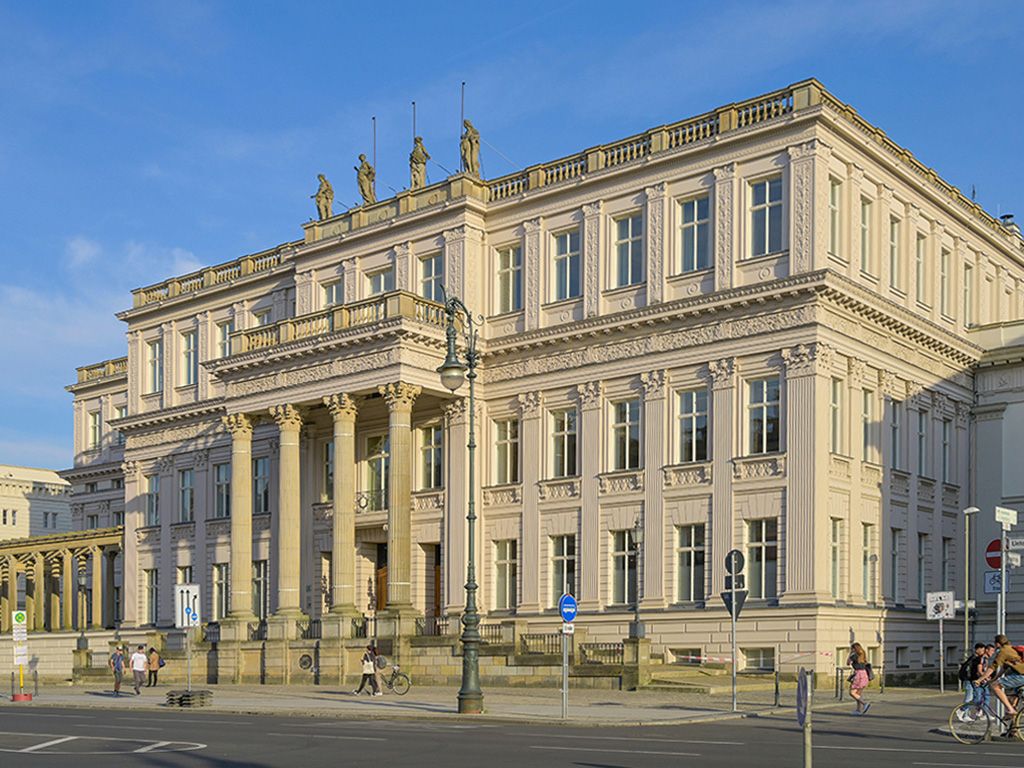
Berlin: Crown Prince’s Palace
The Crown Prince’s Palace at the eastern end of Unter den Linden was rebuilt after the Second World War according to plans by Richard Paulick and is now owned by the federal government. The task of a location and market analysis was to identify potential uses and develop an optimised utilisation option with regard to monument protection and economic efficiency.
In cooperation with empirica

